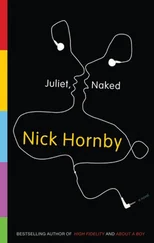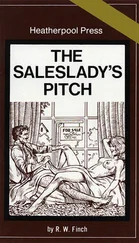What you’re really doing, when you buy a seat season-ticket, is upping the belonging a notch. I’d had my own spot on the terraces, but I had no proprietorial rights over it and if some bloody big-game casual fan stood in it, all I could do was raise my eyebrows. Now I really do have my own home in the stadium, complete with flatmates, and neighbours with whom I am on cordial terms, and with whom I converse on topics of shared interest, namely the need for a new midfielder/striker/way of playing. So I correspond to the stereotype of the ageing football fan, but I don’t regret it. After a while, you stop wanting to live from hand to mouth, day to day, game to game, and you begin wanting to ensure that the remainder of your days are secure.
ARSENAL v LIVERPOOL
25.10.89
I remember the game for conventional reasons, for substitute Smith’s late winner and thus a handy Cup win over the old enemy. But most of all I remember it as the only time in the 1980s and, hitherto, the 1990s, that I had no nicotine in my bloodstream for the entire ninety minutes. I have gone through games without smoking in that time: during the first half of the 83/84 season I was on nicotine chewing gum, but never managed to kick that, and in the end went back to the cigarettes. But in October ’89, after a visit to Allen Carr the anti-smoking guru, I went cold turkey for ten days, and this game came right in the middle of that unhappy period.
I want to stop smoking and, like many people who wish to do the same, I firmly believe that abstinence is just around the corner. I won’t buy a carton of duty-frees, or a lighter, or even a household-sized box of matches because, given the imminence of my cessation, it would be a waste of money. What stops me from doing so now, today, this minute, are the things that have always stopped me: a difficult period of work up ahead, requiring the kind of concentration that only a Silk Cut can facilitate; the fear of the overwhelming domestic tension that would doubtless accompany screaming desperation; and, inevitably and pathetically, the Arsenal.
They do give me some leeway. There’s the first half of the season, before the FA Cup begins, and before the Championship has warmed up. And there are times like now, when with my team out of everything by the end of January I am looking at almost five months of dull but tension-free afternoons. (But I’ve got this book to write, and deadlines, and …) And yet some seasons—the 88/89 Championship year, for example, or the chase for the Double in 90/91 where every game between January and May was crucial—I cannot contemplate what it would be like to sit there without a smoke. Two down against Tottenham in a Cup semi-final at Wembley with eleven minutes gone and no fag? Inconceivable.
Am I going to hide behind Arsenal forever? Will they always serve as an excuse for smoking, and never having to go away at weekends, and not taking on work that might clash with a home fixture? The Liverpool game was, I think, their way of telling me that it’s not their fault, that it is I who control my actions, and not they; and though actually I do remember that I survived the evening without running on to the pitch and shaking the players silly, I have forgotten it all when the forthcoming fixtures convince me that now is not the right time to tackle my nicotine addiction. I have argued before that having Arsenal on my back, like a hump, year after year after year, is a real disability. But I use that disability too, I milk it for all it is worth.
Seven Goals and a Punch-Up
ARSENAL v NORWICH
4.11.89
For a match to be really, truly memorable, the kind of game that sends you home buzzing inside with the fulfilment of it all, you require as many of the following features as possible:
(1) Goals: As many as possible. There is an argument which says that goals begin to lose their value in particularly easy victories, but I have never found this to be a problem. (I enjoyed the last goal in Arsenal’s 7-1 win over Sheffield Wednesday as much as I enjoyed the first.) If the goals are to be shared, then it is best if the other team get theirs first: I have a particular penchant for the 3-2 home victory, with a late winner after losing 2-0 at half-time.
(2) Outrageously bad refereeing decisions: I prefer Arsenal to be the victim, rather than the recipient, of these, as long as they don’t cost us the match. Indignation is a crucial ingredient of the perfect footballing experience; I cannot therefore agree with match commentators who argue that a referee has had a good game if he isn’t noticed (although like everybody else, I don’t like the game stopped every few seconds). I prefer to notice them, and howl at them, and feel cheated by them.
(3) A noisy crowd: In my experience, crowds are at their best when their team is losing but playing well, which is one of the reasons why coming back for a 3-2 win is my favourite kind of score.
(4) Rain, a greasy surface, etc: Football in August, on a perfect grassy-green pitch, is aesthetically more appealing, although I do like a bit of slithery chaos in the goalmouth. Too much mud and the teams can’t play at all, but you can’t beat the sight of players sliding ten or fifteen yards for a tackle or in an attempt to get a touch to a cross. There’s something intensifying about peering through driving rain, too.
(5) Opposition misses a penalty: Arsenal’s goalkeeper John Lukic was the penalty king, so I have seen a fair few of these; Brian McClair’s last-minute horror in the fifth-round FA Cup-tie in 1988—so wild that it nearly cleared the North Bank roof—remains my favourite. However, I retain a residual fondness for Nigel Clough’s efforts, also in the last minute, during a League game in 1990, when he missed; the referee ordered the kick to be retaken, and he missed again.
(6) Member of opposition team receives a red card: “It’s disappointing to hear the reaction of the crowd,” remarked Barry Davies during the Portsmouth-Forest FA Cup quarter-final in 1992, when Forest’s Brian Laws was sent off and the Portsmouth supporters went mad; but what does he expect? For fans, a sending-off is always a magic moment, although it is crucial that this doesn’t happen too early. First-half dismissals frequently result either in boringly easy victories for the team with eleven men (c.f., Forest v West Ham, FA Cup semi-final, 1991), or in an impenetrable defensive reorganisation which kills the game dead; second-half sendings-off in a tight game are impossibly gratifying. If I had to plump for just one dismissal to take on to a desert island with me, it would have to be Bob Hazell of Wolves, sent off in the last minute of a fourth-round cup-tie at Highbury in 1978, when the score was 1-1. As I remember it, he took a swing at Rix, who was trying to get the ball off him so that we could take a corner quickly; from said corner, Macdonald, freed of his disgraced marker for the first time in the game and thus completely unmarked, headed us into a winning lead. I also enjoyed, enormously, Tony Coton’s long and lonely march at Highbury in 1986—there is something special about seeing a goalkeeper go—and Massing’s murderous assault on Caniggia, followed by his valedictory wave to the crowd, during the opening game of the 1990 World Cup.
(7) Some kind of “disgraceful incident” (aka “silliness”, aka “nonsense”, aka “unpleasantness”): We are entering doubtful moral territory here—obviously players have a responsibility not to provoke a highly flammable crowd. A brawl between Coventry and Wimbledon on a wet November afternoon in front of a stupefied crowd of ten thousand is one thing, but a brawl between Celtic and Rangers players, given the barely controllable sectarian bitterness on the terraces, is quite another. Yet one has to conclude, regretfully and with a not inconsiderable degree of Corinthian sadness, that there is nothing like a punch-up to enliven an otherwise dull game. The side-effects are invariably beneficent—the players and the crowd become more committed, the plot thickens, the pulse quickens—and as long as the match doesn’t degenerate as a consequence into some kind of sour grudge-match, brawls strike me as being a pretty desirable feature, like a roof terrace or a fireplace. If I were a sportswriter or a representative of the football authorities, then no doubt I would purse my lips, make disapproving noises, insist that the transgressors be brought to justice—argy-bargy, like soft drugs, would be no fun if it were officially sanctioned. Luckily, however, I have no such responsibility: I am a fan, with no duty to toe the moral line whatsoever.
Читать дальше











